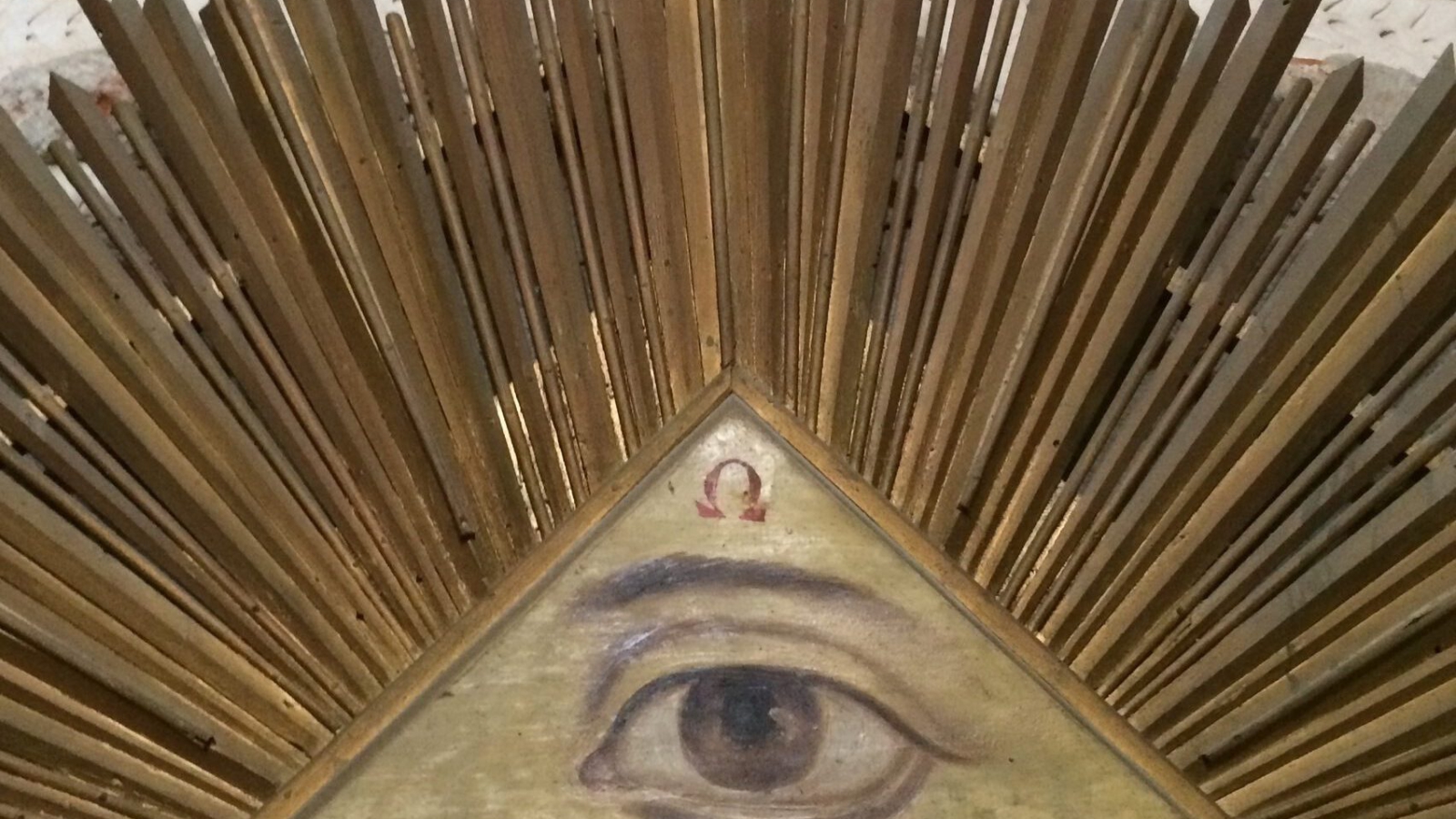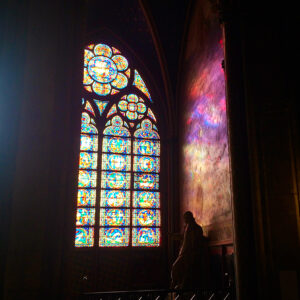Prior to meeting up abroad with M later that year for another ceremony, I dreamt that I was in my childhood home. The place I was most scared of there was the basement, which was never remodeled and had exposed surfaces of concrete, iron support beams, wooden slats, and peeling linoleum tile. Although I often went down there to play in the daytime and never had anything truly scary or bad happen, after dark it became a place of hidden terrors and over the years remained a powerful symbol of existential childhood fears (the dark night of consciousness, ego death, ghostly presences, etc.). In the dream I was alone once again in the house, but also found myself scaring away several other people (whom I can’t recall) and causing them to leave the house. It was if I was the house (and by extension, the basement) driving them away. At the end of the dream I was yelling in silence from the front door as they were leaving the driveway and the last thing I remember was saying (or rather heard myself think) “I’ve come back now”.
Some basic dream analysis would have me believe that the house is a representation of the limited me. In it are rooms of fear or oppression (like the basement), rooms of neutrality (my parents’ bedroom, sister’s bedrooms, and the study), as well as rooms of pleasure (my bedroom, the kitchen, the and playroom with its many windows). Finally, there’s the lush surrounding garden of great beauty and peace. A large home filled with memories of joy and love, dreams and hopes, but mixed with memories of fear, loneliness, and sadness. There are cold winters and warm summers of emotion tied into that home. But is the house really me? Such was the dream, but perhaps that subconscious conceptualization only makes me a prisoner of that thought – a prisoner of the activity of my own mind. While dream symbolism may reveal the innermost workings of the mind, it is highly subjective based upon whatever narrative I’ve already sold myself – and believe. Thus, the narrative impacts the dream and the dream impacts the narrative. This fits the lesson of the bufo – that we continually create our experience, our narrative, but do so according to our earlier patterned thinking and conditioning. My journeys into the deep-self have been very revealing and although they do not eliminate the early conditioning, they do mute its effects. I now realize that my narrative of a sad childhood (or perhaps, a childhood lacking emotional support) became an archetype for my narrative, formulated much of my later conceptualizations, and influenced my behavior. How this imperceptible conditioning informed my life’s narrative is amazing – delusional, but amazing nonetheless. But it’s time for it to go, for I have come home to clean house. So I can come back to drive the fears away, hold that fearful limited ego-self close, and let it know that it can fill itself with light, with joy, and the love it wanted – because that itself is but another choice.
Again, the lesson of the bufo is that we continually create the narrative.




